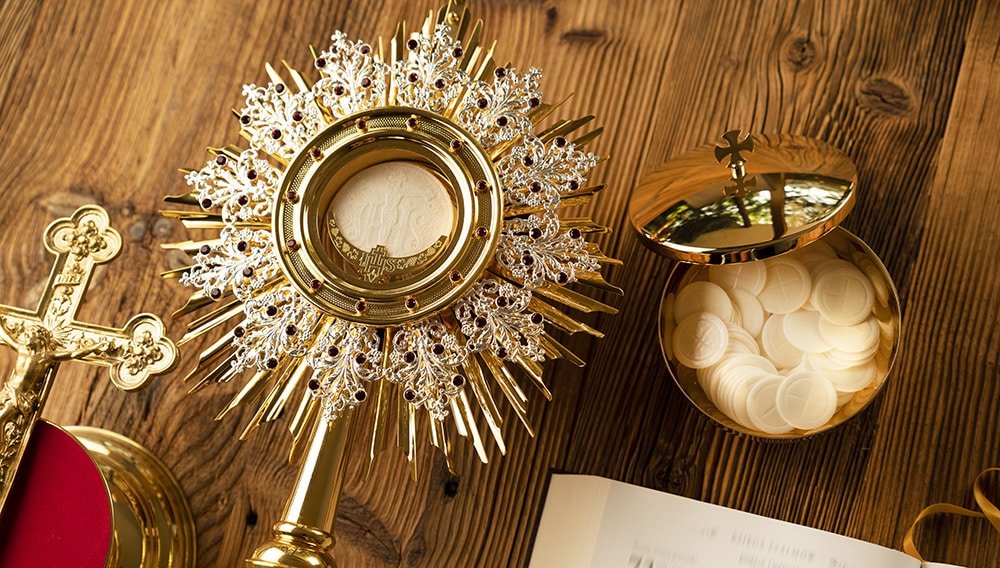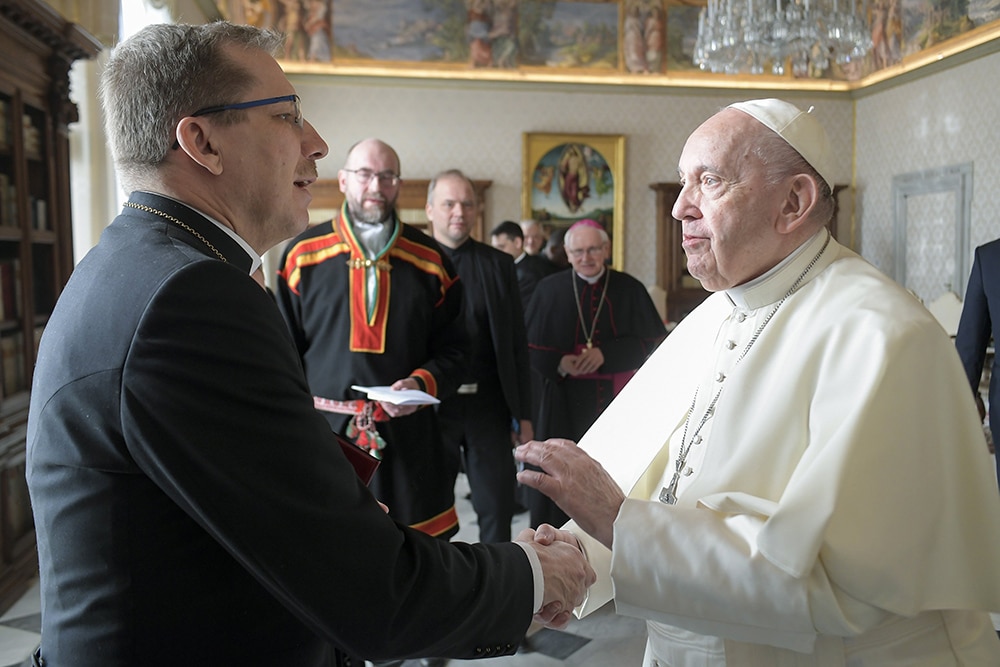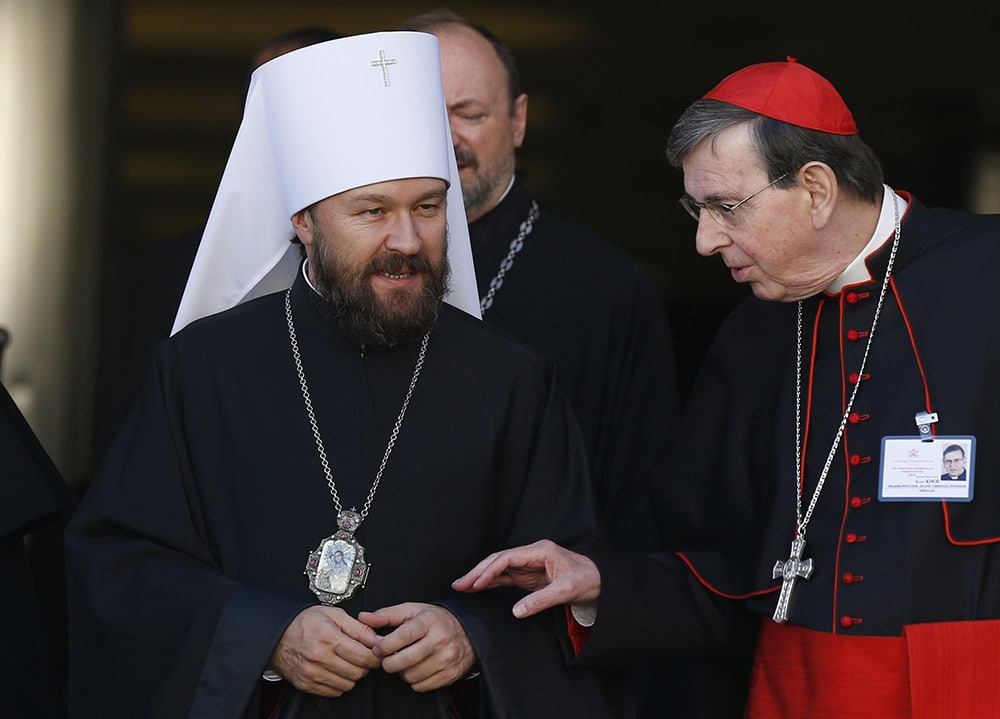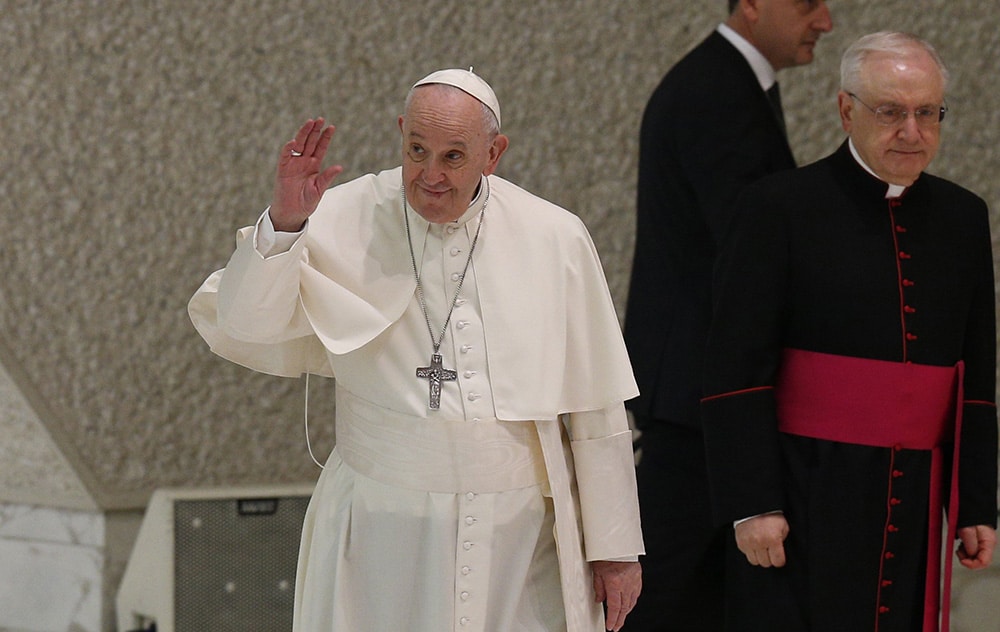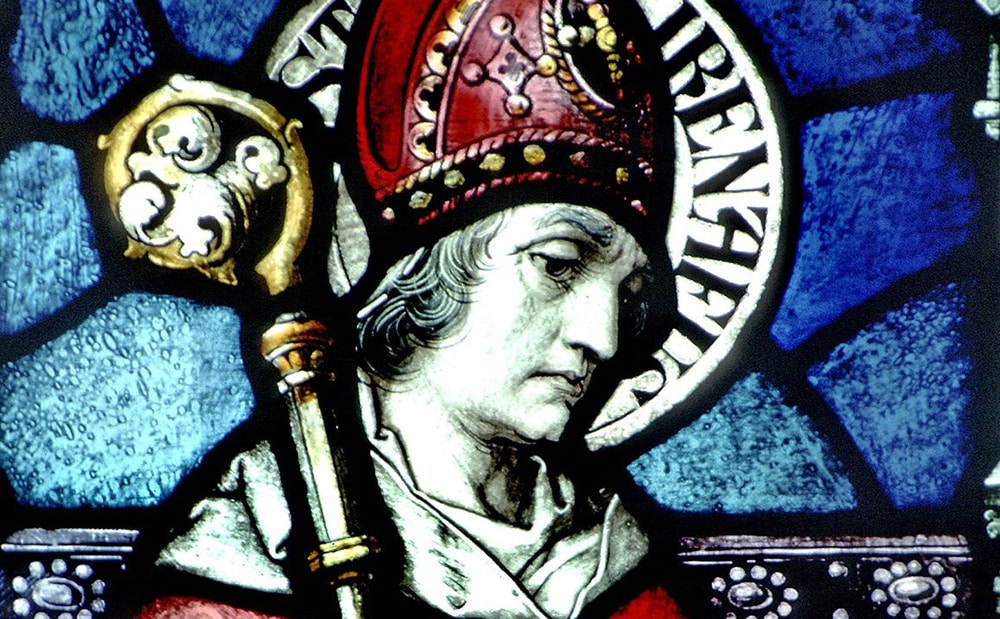In the midst of great challenges and difficulties facing our world and Church today, the U.S. bishops have rightly situated their attention on the Eucharist. The effects of the COVID-19 pandemic have renewed for many an appreciation of the sacrament and its centrality in our lives. While many grew in their faith and were shaped by the Eucharistic absence they experienced when public Masses ceased for a time during the spring of 2020, Mass attendance has still decreased. Often cited is the 2019 Pew Research Center survey, which indicated that less than a third of participants identifying as Catholics believe in Christ’s real presence in the Eucharist. The Church’s authenticity and integrity is weakened amid the increasing number of Catholics who give public counter-witness by infidelity to the Christian life — from clergy who sexually abuse the vulnerable (or cover it up) to pro-abortion politicians. The ever-increasing polarization and division in society and in the Church — which threatens her ability to evangelize a culture so desperately needing the light, truth and witness of the Gospel — expresses an urgency for greater fidelity to Christ’s Eucharistic prayer “that they may all be one” (Jn 17:21).
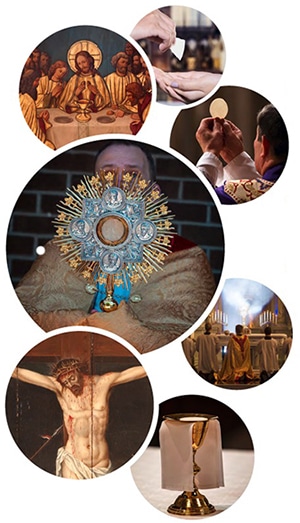
Christ himself says, “I am the living bread that came down from heaven; whoever eats this bread will live forever; and the bread that I will give is my flesh for the life of the world” (Jn 6:51). A new document, titled “The Mystery of the Eucharist in the Life of the Church,” published last fall by the U.S. Conference of Catholic Bishops, reminds us of this reality. It also helps us recall not only that “in a time of turbulence and crisis, Jesus is present among us, as present as he was long ago in the boat on the Sea of Galilee” (No. 1), but wants to illustrate for us that Christ’s enduring and real presence in the Eucharist is the answer to the problems and challenges we face. The document draws readers’ attention to several main characteristics of the Eucharist “that are relevant to contemporary issues and challenges and that help us to appreciate more deeply the gift of grace that has been given to us” (No. 7). The bishops’ document also takes a closer look at how our lives should look in response to receiving Christ’s gift in the Eucharist.
Eucharist as gift
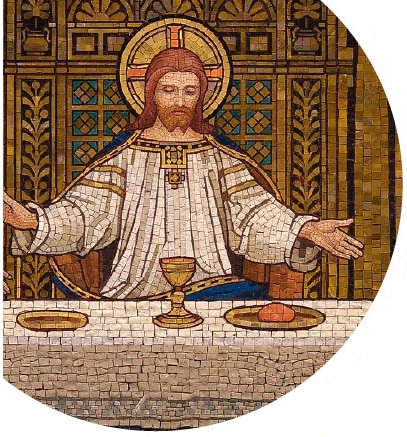 The bishops stress the reality that the Eucharist is a gift, writing: “there is no greater gift that God could possibly give us” (No. 9). Consideration of what “gift” means is intrinsic to the reality of the Eucharist. In the wake of certain measures aimed toward the common good, which resulted in limited access to the sacraments for a time, some Catholics spoke of their rights. But, when understood properly, it is important to recognize, as the late Cardinal Francis E. George, OMI, once observed: “All that Christ has given us through the Church — the Gospel, the sacraments, the Church herself — comes to us from his love. It’s all gift, and it is either received as such or lost.”
The bishops stress the reality that the Eucharist is a gift, writing: “there is no greater gift that God could possibly give us” (No. 9). Consideration of what “gift” means is intrinsic to the reality of the Eucharist. In the wake of certain measures aimed toward the common good, which resulted in limited access to the sacraments for a time, some Catholics spoke of their rights. But, when understood properly, it is important to recognize, as the late Cardinal Francis E. George, OMI, once observed: “All that Christ has given us through the Church — the Gospel, the sacraments, the Church herself — comes to us from his love. It’s all gift, and it is either received as such or lost.”
Receiving the Eucharist as a gift, then, means that we accept the gift on Christ’s terms; that we receive what Christ intended by it, which is to say we allow our lives, with the help of his grace, to be modeled after Christ’s own. The bishops’ document cites St. Augustine, who preached, “the maker of man was made man, so that man might be a receiver of God.”
Sacrifice of Christ
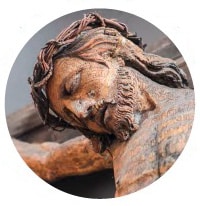 At the heart of the Eucharist is Christ’s sacrifice, which is made present again in the celebration of the sacrament. If another line from St. Augustine pertaining to our reception of the Eucharist is true — “receive what you are and become what you receive” — then our lives are also to be sacrificial. This means that we set aside ourselves, which is why the bishops spend several paragraphs talking about how sin alienates us from opening ourselves to the gift offered in the Eucharist. Using words like “self-centeredness” and “selfishness,” the bishops are describing one of the most problematic realities about humanity at the present. When sin is relativized, trivialized and even lauded in celebration of an “I’ve got to be me” generation, the Eucharist proposes the proper response — indeed Christ’s own after having instituted the memorial of what he was soon to accomplish on the cross: “Father … not as I will, but as you will” (Mt 26:39). The bishops provide a robust description of the meaning of Christ’s sacrifice for our salvation, situated in the context of its meaning in salvation history and made present in the Eucharist. If the effects of the Eucharist are to take place in our lives, we must echo St. John the Baptist: “He must increase; I must decrease” (Jn 3:30).
At the heart of the Eucharist is Christ’s sacrifice, which is made present again in the celebration of the sacrament. If another line from St. Augustine pertaining to our reception of the Eucharist is true — “receive what you are and become what you receive” — then our lives are also to be sacrificial. This means that we set aside ourselves, which is why the bishops spend several paragraphs talking about how sin alienates us from opening ourselves to the gift offered in the Eucharist. Using words like “self-centeredness” and “selfishness,” the bishops are describing one of the most problematic realities about humanity at the present. When sin is relativized, trivialized and even lauded in celebration of an “I’ve got to be me” generation, the Eucharist proposes the proper response — indeed Christ’s own after having instituted the memorial of what he was soon to accomplish on the cross: “Father … not as I will, but as you will” (Mt 26:39). The bishops provide a robust description of the meaning of Christ’s sacrifice for our salvation, situated in the context of its meaning in salvation history and made present in the Eucharist. If the effects of the Eucharist are to take place in our lives, we must echo St. John the Baptist: “He must increase; I must decrease” (Jn 3:30).
In imitation of Christ, then, our lives are not spent for ourselves. Instead, “The capabilities, talents, and gifts that we have received from God are meant to be used for good … the true good that glorifies the Father of goodness and is directed for the good of others and, in the end, is also good for us” (No. 11). This is what it means to live Eucharistically. And it is the spiritual worship referenced by St. Paul: “offer your bodies as a living sacrifice, holy and pleasing to God, your spiritual worship” (Rom 12:1). As Pope Benedict XVI explained, “A Eucharist which does not pass over into the concrete practice of love is intrinsically fragmented” (Deus caritas est, No. 14). Cardinal George once said that “the only thing we take with us when we die is what we have given away.” Our call is no less than Christ’s: to give away all, our very selves, and bring it with us to present to him at our judgment.
Christ’s real presence
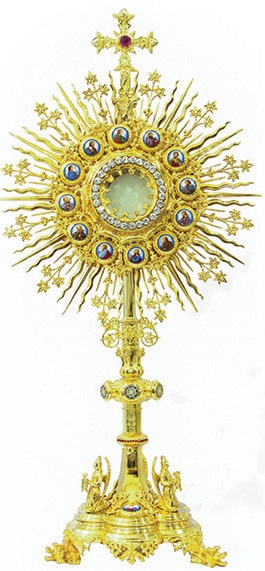
The bishops’ document offers a clear and concise treatment of the Church’s doctrine on Christ’s real presence in the Eucharist. Given the Eucharistic fast many Catholics took on in response to necessary precautions taken up for the common good with the advent of the COVID-19 pandemic, Catholics were challenged to perceive anew the ways in which Christ is present to us. The bishops reiterate the reality of Christ’s presence in other modalities — such as in the word of God proclaimed, in the ordained ministers celebrating the sacred mysteries, or in the other sacraments immersing us into the mystery of Christ’s life. At the same time, they recognize that his Eucharistic presence, citing Pope St. Paul VI, is “par excellence, because it is substantial and through it Christ becomes present whole and entire, God and man” (Mysterium Fidei, No. 39).
The maxim “lex orandi, lex credendi,” which means “the law of what is prayed is the law of what is believed,” illustrates that our liturgical practice expresses our faith. In that vein, the bishops note that our belief in the real presence of Christ in the Eucharist is manifested in how we worship and behave (No. 23). If Catholics’ belief in Christ’s real presence is to be strengthened, then it only makes sense to increase our Eucharistic rituals and devotions: Eucharistic exposition, adoration and benediction, Eucharistic processions and Forty Hours devotions. But the bishops also point to proper etiquette and behavior, which is expressive of our belief in the Real Presence: reverent genuflections before Christ’s Eucharistic presence reserved in the tabernacle, a head bow before reception of holy Communion and observing the Church’s Eucharistic fast one hour prior to reception of the sacrament.
Communion with Christ and the Church
The night that Christ instituted the Eucharist, he prayed that those who believe in him might be one (cf. Jn 17:21). In the Eucharist, we receive Christ so that we might be one with him. And so we receive a sacrament we call Communion, rather than co-union, because our communion with Christ is unity with the Divine Persons in the Blessed Trinity, but also unity with all those within whom Christ is also in union. Because of this, “the Eucharist makes the Church” (Catechism of the Catholic Church, No. 1396).
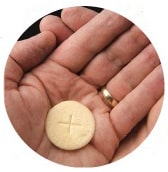 While baptism incorporates us into the Church, which is the Body of Christ, the Eucharist binds together all the Church’s sacraments, work and ministry, making the sacrament of Christ’s body and blood “the source and summit of the Christian life” (Lumen Gentium, No. 11). This gives reason for the bishops’ document to reiterate the centrality of the obligation to attend Sunday Mass, which they state is “not the mere observance of a rule but the fulfillment of our identity, of who we are as members of the Body of Christ” (No. 28).
While baptism incorporates us into the Church, which is the Body of Christ, the Eucharist binds together all the Church’s sacraments, work and ministry, making the sacrament of Christ’s body and blood “the source and summit of the Christian life” (Lumen Gentium, No. 11). This gives reason for the bishops’ document to reiterate the centrality of the obligation to attend Sunday Mass, which they state is “not the mere observance of a rule but the fulfillment of our identity, of who we are as members of the Body of Christ” (No. 28).
Christ’s prayer for unity at the Last Supper is conditioned by the recognition that our unity has a purpose: “that the world may believe” (Jn 17:21). Our unity with Christ, and with those who are also in communion with him, means we must be authentic and true disciples — not just for our salvation but for the sake of the mission Christ gives us. We are to cooperate with the grace we receive in the sacraments, especially the Eucharist, to allow God’s grace to bear fruit in our lives. The Eucharist is what strengthens, challenges and enables us to be fully Catholic. Our communion with Christ is to result in our conversion and transformation, so that, as St. Paul said, “I live, no longer I, but Christ lives in me” (Gal 2:20).
The gift of God’s grace given in the Eucharist, the bishops say, “inspires us to give thanks and worship him, works out transformation into the likeness of Christ, helps us to seek pardon and to receive it when we fall into sin, and impels us to go forth and bear witness to Christ in the world” (No. 29).
Thanksgiving and worship
Eucharist is a Greek word meaning thanksgiving. The Eucharist is the means by which we learn to recognize all things as gift from God and express our gratitude to him. Again calling us to see all as gift, which is perceiving the world Eucharistically, the bishops speak to a culture that no longer sees creation as a mystery to be understood so much as a reality to be mastered. When we see all as gift, we realize that the divine gift-giver not only loves and cares for us, but also has given the gift for a purpose to which we conform ourselves.
The bishops turn their attention to the expressions of thanksgiving through worship, urging us to “actively engage our minds, hearts and bodies to every part of the liturgy, allowing God through the words, actions, gestures, and even the moments of silence to speak to us” (No. 31). They additionally, quoting Pope Francis, exhort liturgical celebrations to be conducted with befitting sacredness, “with decorum and fidelity … without the eccentricities that can degenerate into abuses” (No. 32). This, the bishops say, “will lead the people more deeply and reverently into the exchange which is the dialogue of the Father and the Son in the Holy Spirit” (No. 32). Eucharistic worship outside of Mass is encouraged by the bishops to assist Catholics “to be formed by the self-giving love we behold in the Lord’s gift of himself in the Eucharist” (No. 33).
Transformation in Christ
The bishops’ document on the Eucharist came about through no small amount of debate and tension. While it is true that the document is responding to many different and urgent realities related to the Church’s Eucharistic faith, it was hard for the bishops to deny that it was unrelated to the election of a regular communicant to the nation’s highest office, who also happens to support the most radical pro-abortion agenda in U.S. history.
While the bishops did not address this directly, the bishops taught clearly that “our relationship with Christ is not restricted to the private sphere; is it not for ourselves alone” (No. 35). The document cites Pope St. John Paul II, who wrote in his encyclical letter Veritatis Splendor, “by sharing in the sacrifice of the Cross, the Christian partakes of Christ’s self-giving love and is equipped and committed to live this same charity in all his thoughts and deeds” (No. 107). “We receive grace that enables us to imitate the love that Christ shows us,” the bishops wrote (No. 34). More specifically, the bishops exhort Eucharistic consistency: “We all need to be consistent in bringing the love of Christ not only to our personal lives, but also to every dimension of our public lives” (No. 35). Moreover, the bishops state that “laypeople who exercise some form of public authority have a special responsibility to form their consciences in accord with the Church’s faith and the moral law, and to serve the human family by upholding human life and dignity” (No. 36).
The bishops explicitly illustrate how Eucharistic living commits us to attend to the poor and vulnerable and to fight what Pope Francis has called our “throwaway culture,” in which our society tends to see people as dispensable (cf. No. 38). The Eucharist beckons us to call not only for the least among us, but for all of God’s creation as well. The bishops highlight that the grace of the Eucharist enables us to see with the eyes of Christ, where our vision is not distorted by sin, in which “we will be able to love each other in a way that reflects the way God loves us” (No. 41).
Conversion
As we work to build up God’s kingdom, we are called out of our “sinful indifference,” to a life of repentance and conversion. The bishops note the necessity of confessing our sinfulness and imploring the Lord’s mercy, which occurs at the beginning of every Mass in the penitential act. Only once we have acknowledged our sinfulness can we enter into the celebration of the Eucharist. “We are all sinners and sometimes fail to live up to our vocation as disciples of Jesus and to the promises of our Baptism. We need continually to heed Christ’s call to conversion” (No. 44). With this recognition, and with humble and contrite hearts, we approach the altar by professing, “Lord, I am not worthy that you should enter under my roof, but only say the word and my soul shall be healed.”
While the bishops present the medicinal power of the Eucharist, reception of which forgives venial sins, they also express the need to refrain from the Eucharist when in the state of mortal sin. In that case, not only is one indisposed to receiving God’s grace in the sacrament, but “He or she commits the sin of sacrilege by failing to show the reverence due to the sacred Body and Blood of Christ” (No. 47). Again, our belief regarding Eucharistic doctrine must align with our sacramental practices: “The person who, by his or her own action, has broken communion with Christ and his Church but receives the Blessed Sacrament, acts incoherently, both claiming and rejecting communion at the same time. It is thus a countersign, a lie — it expresses a communion that in fact has been broken” (No. 47).
| Restoring broken communion |
|---|
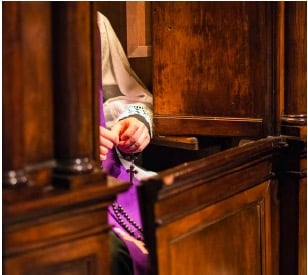 If we have sinned gravely, the Sacrament of Penance and Reconciliation enables us to again receive sanctifying grace and restores us to full communion with Christ and the Church. The sacrament requires penitents to: If we have sinned gravely, the Sacrament of Penance and Reconciliation enables us to again receive sanctifying grace and restores us to full communion with Christ and the Church. The sacrament requires penitents to:
|
The bishops, in their call to Eucharistic coherence, reiterate their 2006 statement that Catholics in their personal or professional life who “knowingly and obstinately” reject the Church’s defined doctrines or repudiates the Church’s definitive moral teachings “would seriously diminish his or her communion with the Church” and should refrain from receiving holy Communion. In their new document, the bishops go further, saying that in such situations, those who receive holy Communion “[are] also likely to cause scandal for others, weakening their resolve to be faithful to the demands of the Gospel” (No. 48). Bishops are entrusted with the “special responsibility” to remedy such public situations. The document says each “must guard the integrity of the sacrament, the visible communion of the Church, and the salvation of souls” (No. 49).
Before reception of holy Communion, the bishops remind Catholics of the importance of making a good examination of conscience in advance “to ensure that we are properly disposed,” and “if we find that we have broken communion with Christ and his Church, we are not properly disposed to receive the Eucharist.” Reminding us of God’s love and mercy, and his desire to restore communion with him, the bishops encourage reception of the Sacrament of Penance and Reconciliation, in order to “recover the gift of sanctifying grace and to be restored to full communion with God and the Church” (No. 50).
Food for the journey
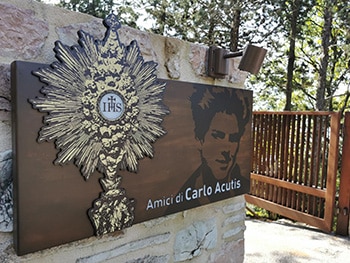
To see the fruits of the Eucharist in the lives of others, the bishops urge us to look at the lives of the saints. The call they answered is the very same call we have received. As we endeavor to journey to heaven, to become the saints God made us to be, the grace offered to us in the Eucharist is our road map. The bishops’ document highlights the lives of Blessed Carlo Acutis, an Italian teenager who was beatified in 2020 and who called the Eucharist “my highway to heaven,” and St. Jóse Sánchez del Río, a Mexican teenage martyr canonized in 2016 who was strengthened by the Eucharist when in jail and chose death rather than rejection of his faith. The bishops also highlighted the witness of St. Elizabeth Ann Seton, the first native-born American to be canonized, as an example of those drawn to reception into the Church as a result of their belief in Christ’s real presence in the Eucharist. After her first Communion as a convert from Anglicanism, the saint wrote in her journal: “At last GOD IS MINE and I AM HIS.” Lamenting the large and increasing numbers of those leaving churches in America, the bishops quote St. Teresa of Calcutta: “Once you understand the Eucharist, you can never leave the Church. Not because the Church won’t let you, but because your heart won’t let you.”
Mission and evangelization
The gift of the Eucharist is not given to us for ourselves but for the life of the world. There is, therefore, an intrinsic link between the Eucharist and the Church’s mission. The dismissal at the end of the Mass — “Ite missa est,” as rendered in the Latin text of the Roman Missal — can be literally translated as “Go, having been sent.” We gather, we receive Christ, and we are sent to bring him to others. Or, as Christ commanded before he returned to his Father in heaven, after having been sent himself into the world for its salvation, “Go into the whole world and proclaim the gospel to every creature” (Mk 16:15).
“We are not the only ones in need of the love that Christ has shown us. We are called to help the rest of the world experience it,” the bishops wrote (No. 56). They echo Pope Francis’ call to be “missionary disciples.” This, the pope described in his apostolic exhortation Evangelii Gaudium, does not require advanced training, but only for one who has experienced God’s saving love to “go out and proclaim that love” (No. 120).
Michael R. Heinlein is editor of OSV’s Simply Catholic. He writes from Indiana.
| National Revival |
|---|
 At the end of their new document on the Eucharist, the bishops encourage a time of Eucharistic renewal. The concrete manifestation of this has taken root in a National Eucharistic Revival, which endeavors “to renew the Church by enkindling a living relationship with the Lord Jesus Christ in the Holy Eucharist.” At the end of their new document on the Eucharist, the bishops encourage a time of Eucharistic renewal. The concrete manifestation of this has taken root in a National Eucharistic Revival, which endeavors “to renew the Church by enkindling a living relationship with the Lord Jesus Christ in the Holy Eucharist.”
The National Eucharistic Revival, overseen by the U.S. Bishops’ Committee for Catechesis and Evangelization, is described as “a movement of Catholics across the United States, healed, converted, formed, and unified by an encounter with Jesus in the Eucharist — and sent out in mission ‘for the life of the world.'” Every Catholic is invited and encouraged to participate in this effort and its related events. The National Eucharistic Revival is built upon five strategic pillars:
The Eucharistic Revival launches this year on the solemnity of the Most Holy Body and Blood of Christ (Corpus Christi), June 19, 2022. For three years, this revival hopes to bring about diocesean Eucharistic congresses and processions, increase or begin Eucharistic adoration in parishes, rejuvenate liturgical life by greater and more faithful adherence to the liturgical rubrics and norms, encourage small groups to gather to learn and pray together, and increase charity toward the poor. June 2022-June 2023 will focus on Eucharistic Renewal on the diocesan level, followed by a parish-level focus from June 2023 to July 2024. The culminating event of the Eucharistic Revival will be a National Eucharistic Congress in Indianapolis from July 17-21, 2024. A Year of Going Out on Mission will follow until Pentecost 2025. For more information or to get involved, visit eucharisticrevival.org. |

